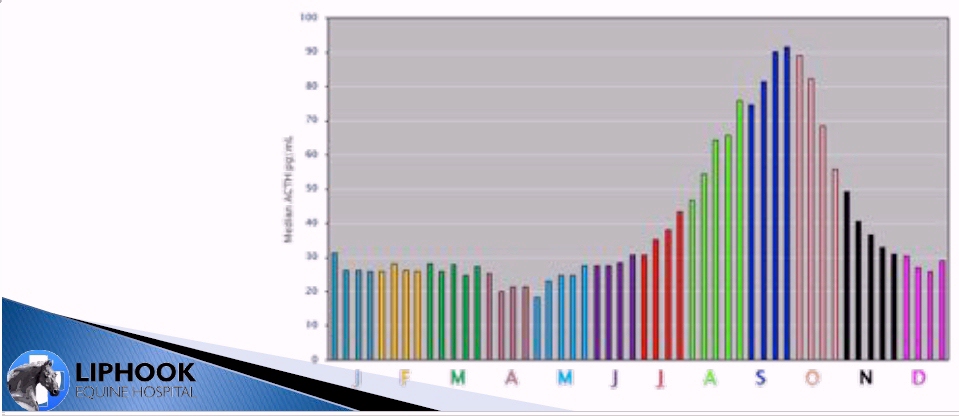In the UK the seasonal rise is thought to start around the end of June/start of July, peak in September, with hormones returning to normal around the end of November/start of December.
Three important facts about the seasonal rise:
1. Horses with PPID may need an increase in their pergolide dose during the seasonal rise. Testing resting ACTH in August may help to identify horses that need an increased dose.
2. For horses suspected of having, but not yet diagnosed with PPID, testing resting ACTH in September may be the best time to differentiate horses with PPID from normal horses. Lab fees for ACTH testing are currently free for horses (in the UK) that haven't been diagnosed with PPID through Talk About Laminitis.
3. Horses with PPID may show increased clinical signs of PPID during the seasonal rise. Horses that have unexplained laminitis or infections, particularly from August to October, may need to have PPID eliminated as a contributing factor.
In all cases, if you are worried that your horse may have PPID or needs a change in his/her treatment, speak to your vet.
(Graph: used with permission from Liphook Equine Hospital)


 RSS Feed
RSS Feed